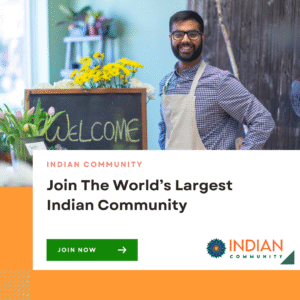Located in the heart of Kentucky, Beaver Dam is home to a vibrant and growing Indian community that adds a rich tapestry of culture and diversity to the city. While exact population figures are not readily available, anecdotal evidence and local sources suggest that the Indian community in Beaver Dam is steadily expanding. Indian families have been drawn to Beaver Dam primarily due to opportunities in sectors such as IT, healthcare, and education, contributing their skills and expertise to the local economy. Notable neighborhoods like Maple Hill and Oakwood Estates have seen an increase in Indian families settling down, creating a sense of community and belonging. These neighborhoods have become hubs where Indian traditions and customs are upheld and celebrated. The Indian community in Beaver Dam actively participates in cultural events and festivals, showcasing traditional dances, music, and culinary delights that are enjoyed by both Indians and locals alike. In terms of language, while English is predominantly spoken, many Indian families also converse in languages such as Hindi, Tamil, Telugu, and Gujarati, fostering a multilingual environment in the community. Indian cuisine has made its mark in Beaver Dam, with local eateries offering authentic dishes like biryani, samosas, and masala dosas, satisfying cravings for those seeking a taste of India. Festivals like Diwali, Holi, and Navratri are enthusiastically observed, bringing the community together in joyous celebration. The Indo-local integration in Beaver Dam is a testament to the city's welcoming atmosphere and the Indian community's efforts to embrace their new home while preserving their cultural heritage. As the Indian diaspora continues to grow in Beaver Dam, the city thrives on the contributions and unique perspectives brought forth by this dynamic community, making it a truly inclusive and diverse place to live.
Local Upcoming Events
In Beaver Dam, Kentucky, the Indian community enthusiastically celebrates various cultural and religious events throughout the year. Residents can partake in vibrant festivals like Diwali, the Festival of Lights, which usually takes place in October or November, and Holi, the colorful spring festival celebrating the victory of good over evil. Additionally, Navratri, a nine-night festival dedicated to the Hindu goddess Durga, is also celebrated with great fervor. The local Indian community often gathers at the Sri Ganesha Temple to observe these festivals, along with Eid celebrations for the Muslim community. Organizations like the Indian Association of Western Kentucky and cultural clubs like the Indian Cultural Society actively organize and host these events, providing a sense of community and cultural connection. On average, Beaver Dam hosts around 4-6 major Indian cultural events annually, drawing in both local residents and visitors to partake in the rich tapestry of Indian traditions and festivities.
Indian Community Trusted Local Businesses
In the vibrant city of Beaver Dam, Kentucky, the Indian community has established a few notable businesses that cater to both their own community and the local residents. One of the most common Indian-owned businesses in Beaver Dam is Indian restaurants, offering a delicious array of traditional Indian cuisine like flavorful curries, aromatic biryanis, and crispy samosas. These restaurants not only provide a taste of India for the Indian community but also introduce locals to the rich flavors and spices of Indian cooking. Additionally, there are a couple of Indian grocery stores in the area, offering a wide range of authentic Indian spices, lentils, snacks, and other specialty ingredients that are essential for Indian cooking. These stores serve as a convenient one-stop shop for the Indian community to find familiar ingredients from their homeland and also attract food enthusiasts from the local community who are curious to explore Indian flavors in their own kitchens. Overall, while the Indian community in Beaver Dam may be small, these businesses play a significant role in preserving cultural traditions, fostering a sense of community, and promoting cross-cultural exchange through the shared love of food and ingredients.
 Register
Register- Already have an account? Sign In »
- Lost your password?
